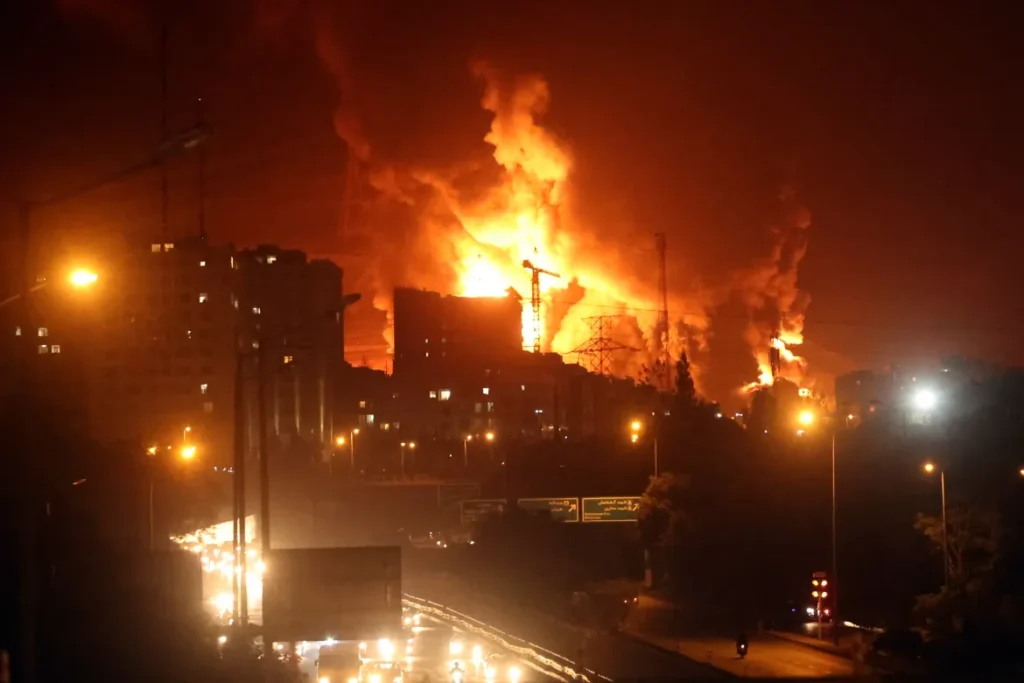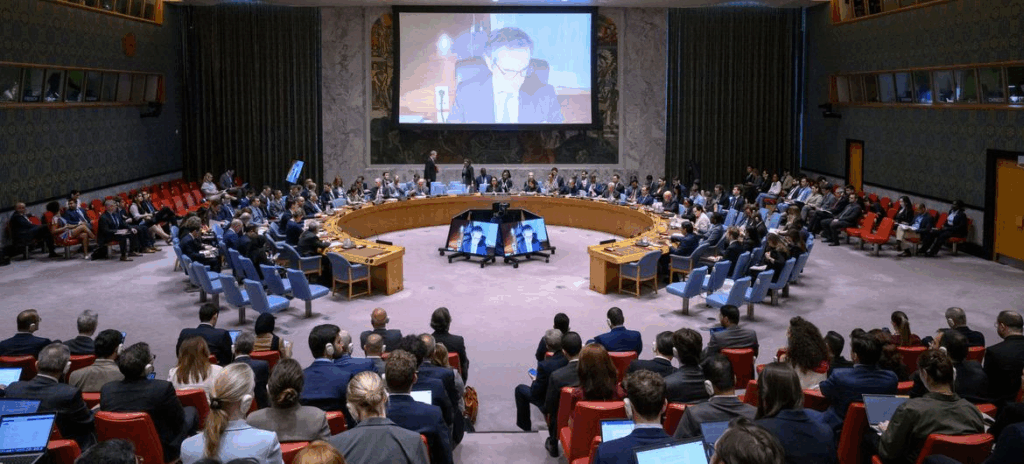The Israel–Iran conflict has reached a critical phase, entering its third consecutive day of confrontation. On June 15, 2025, Israel intensified its military campaign by launching large-scale airstrikes targeting Iranian oil and gas infrastructure. Iran responded with heavy missile and drone attacks on major Israeli cities. The ongoing violence has resulted in hundreds of civilian casualties, crippled vital energy supplies, and triggered global diplomatic fallout. As diplomacy collapses, analysts warn that the region may be heading toward a broader war with devastating consequences.
What Happened: Third Day of Israel–Iran Strikes

On June 15, Israel launched a third consecutive day of airstrikes inside Iran. This time, the military focused heavily on oil and gas infrastructure. In particular, Israeli jets struck the Shahran oil depot and Shahr-e Rey refinery in Tehran, sparking major fires and disrupting urban fuel supplies.
Meanwhile, Iran responded with its largest missile barrage yet. Cities like Tel Aviv, Haifa, and Bat Yam came under fire overnight. According to Iranian state media, more than 200 drones and ballistic missiles were launched. Israel’s emergency services confirmed at least 10 deaths and over 200 injuries.
Energy Infrastructure Now in the Crosshairs
Israel has now expanded its target list to include Iran’s critical energy infrastructure. On June 15, it struck:
- The offshore South Pars gas field, one of Iran’s largest
- The Fajr-e Jam gas refinery in Bushehr province
These facilities supply the majority of Iran’s domestic energy. As a result, Iranian officials were forced to shut down parts of the grid. Meanwhile, cities like Tehran are reporting fuel shortages and rolling blackouts.
Iran Retaliates with Precision Attacks
Iran has made it clear that it will not back down. Overnight, the Islamic Revolutionary Guard Corps launched over 200 ballistic missiles and dozens of Shahed drones. The goal was to overwhelm Israeli defenses while targeting both military sites and civilian areas.
In Bat Yam, a residential building collapsed after a direct hit, killing three people. Across the country, hospitals treated hundreds of wounded civilians. Iran’s leadership stated that further retaliation would follow if Israeli airstrikes continued.

How the Conflict Escalated: From Covert Tensions to Open War
Although Israel and Iran have long been adversaries, the current conflict represents a dramatic escalation from their usual shadow war. Prior to this eruption of violence, both nations had engaged in indirect hostilities through cyberattacks, proxy groups, and targeted assassinations. Tensions steadily rose in late 2024 and early 2025 amid Israel’s prolonged war on Gaza and Iran’s growing support for regional resistance groups like Hezbollah and the Houthis.
In May 2025, Iranian-linked militias intensified their operations in Iraq and Syria, targeting assets associated with both Israel and the United States. Israel responded with a series of deadly airstrikes in Damascus and southern Lebanon, killing several Iranian military advisors. Though these incidents were serious, they did not provoke open conflict.
The tipping point came on June 11, when Israeli intelligence claimed to have foiled a large-scale Iranian plot involving proxy attacks on Tel Aviv. The following day, an explosion rocked Iran’s Isfahan nuclear facility. While Israel did not officially claim responsibility, Iranian officials blamed Mossad and threatened retaliation. On June 13, the conflict moved into the open when Israel launched “Operation Rising Lion,” a wide-scale offensive against Iran’s nuclear and military infrastructure. Iran responded with “Operation True Promise III,” a counter-campaign involving missile strikes on Israeli cities. Since then, both sides have escalated their operations, with no signs of restraint.
Civilian Impact and Energy Crisis

The conflict has taken a heavy toll on civilians and essential infrastructure.
- Over 400 people have been killed in Iran, including at least 14 nuclear scientists. More than 650 have been wounded.
- Fires at major oil depots continue to burn, worsening energy shortages.
- Iran’s South Pars gas field has been partially shut down, triggering rolling blackouts.
- In Israel, at least 10 civilians have died and hundreds have been injured.
- Cities like Tel Aviv remain under threat, with shelters and hospitals overwhelmed.
Market and Regional Ripple Effects
- Gulf stock markets plunged amid fears of prolonged conflict: Kuwait lost 4.6%, Qatar dropped 3.2%, and Saudi Arabia declined over 1%.
- Oil prices surged 7–9% over the weekend due to risks to regional supply, while global energy markets remained volatile
Leadership Statements and Strategic Warnings

Israeli Officials
- Defence Minister Israel Katz stated, “Tehran will burn” if strikes continue.
- Prime Minister Netanyahu defended the targeting of energy infrastructure as necessary to dismantle Iran’s “military escalation capabilities.”
Iranian Authorities
- IRGC leadership warns of escalating new waves of attacks aimed at military and civilian targets if strikes persist.
Foreign Minister Abbas Araghchi declared that Iran’s missile barrages will cease only once Israel stops bombing Iranian territory.
Diplomatic Impact: Talks Collapse, Global Concern
- A U.S.–Iran nuclear negotiation in Oman, scheduled for June 15, was formally suspended after Israel’s oil facility strikes. Iran called the talks “unjustifiable” under current conditions
- The United Nations Security Council met again but failed to pass any resolution, as calls for de‑escalation intensified.
- Defense postures hardened globally: the U.K. deployed jets to Cyprus; Australia closed embassies and urged citizens in Tehran and Tel Aviv to seek shelter.

What Happens Next?
- Intensity Likely to Continue: Both nations warn of further attacks—Israel against strategic sites, Iran against military and civilian zones.
- Regional Spillover: With threats across Gulf chokepoints, oil markets, and arms posturing by external powers, broader instability is a serious concern.
- Diplomacy on Hold: With nuclear talks suspended and trust eroded, diplomatic solutions may not resume soon.
- Risk of Wider War: Analysts warn that prolonged strikes, especially targeting energy grids, could draw in proxies and global actors, elevating risks of a regional conflagration.
Last Updated: June 15, 2025 – 18:00 GMT

